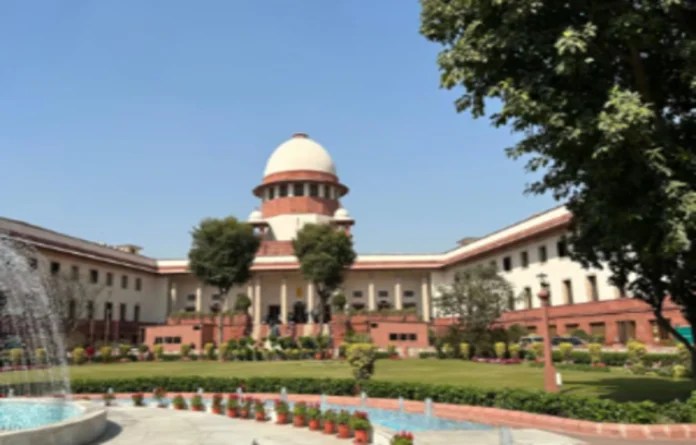In a significant judicial development, the Supreme Court of India has issued a directive to the Union Government to furnish a comprehensive response to a set of writ petitions seeking the reinstatement of full statehood for the erstwhile state of Jammu and Kashmir.
The Bench, presided over by Chief Justice B. R. Gavai and Justice K. Vinod Chandran, underscored that the adjudicatory process must be informed by prevailing ground realities, expressly referencing the recent Pahalgam terrorist incident as a material consideration that cannot be disregarded.
During the proceedings, Solicitor General Tushar Mehta advanced submissions outlining the multiplicity of strategic, security, and administrative variables that influence any decision on statehood restoration. Acknowledging these factors, the Court observed that the determination of such a constitutional question squarely falls within the legislative and executive domains.
The matter, arising from petitions filed by academician Zahoor Ahmad Bhat and civil society activist Ahmad Malik, has been slated for further hearing after an interval of eight weeks, thereby affording the Centre sufficient latitude to articulate its stance.
This development follows the Court’s landmark pronouncement of December 11, 2023, wherein it upheld the constitutional validity of the abrogation of Articles 370 and 35A, while mandating that elections to the Jammu and Kashmir Legislative Assembly be conducted by September 2024. In that verdict, the Court had also advised that full statehood be restored “at the earliest.”
The current petitions urge the Court to direct the Union to commit to a definitive, time-bound framework—preferably within a two-month horizon—for the reinstatement of statehood. The petitioners contend that the prolonged retention of Union Territory status erodes the federal structure envisaged under the Constitution and dilutes representative democracy in the region.
Key Judicial and Contextual Points
- Bench Composition: Chief Justice B. R. Gavai; Justice K. Vinod Chandran
- Petitioners: Zahoor Ahmad Bhat (academician) and Ahmad Malik (activist)
- Judicial Directive: Union Government to submit a formal affidavit within eight weeks
- Precedential Context: December 2023 ruling upheld Article 370 abrogation, directed elections by September 2024, urged expedited statehood restoration
- Security Imperative: April 22 Pahalgam terror attack cited as a substantive contextual factor
Constitutional and Political Backdrop
Following the revocation of Article 370 in August 2019, Jammu and Kashmir was reorganised into two Union Territories—J&K (with legislature) and Ladakh (without legislature)—via the Jammu and Kashmir Reorganisation Act, 2019, effective October 31, 2019. This restructuring was operationalised through Presidential Orders C.O. 272 and C.O. 273.
Despite judicial exhortations in 2023, neither the mandated Assembly elections nor the restoration of statehood has been effectuated within the prescribed timeframe. The present proceedings thus centre on governmental accountability, constitutional federalism, and the readiness of the region—both in terms of security architecture and administrative capacity—for a return to full statehood.
The Court’s express reference to “incidents like Pahalgam” signals a cautious, security-conscious approach, suggesting that any transition plan must be contingent upon a holistic assessment of stability, governance efficacy, and public safety imperatives. The forthcoming parliamentary and executive response will likely determine the trajectory of this politically and constitutionally sensitive matter.


